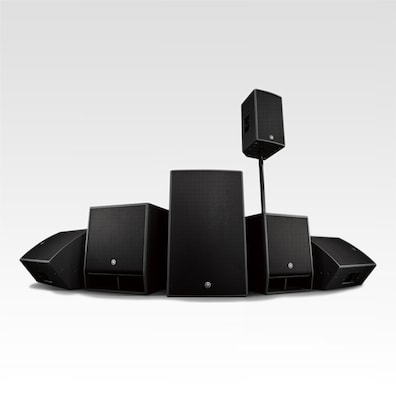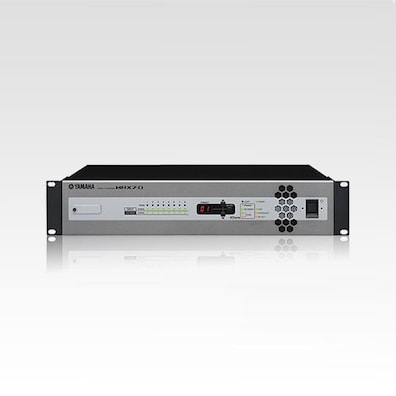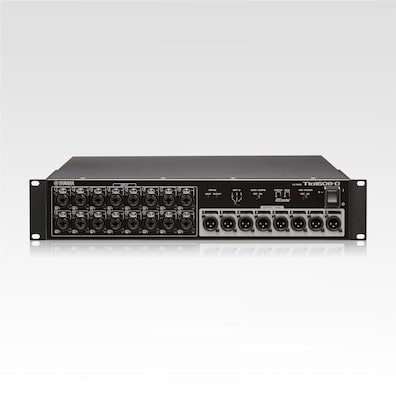Yamaha Is A Sound Investment For Swedish Handball Arena
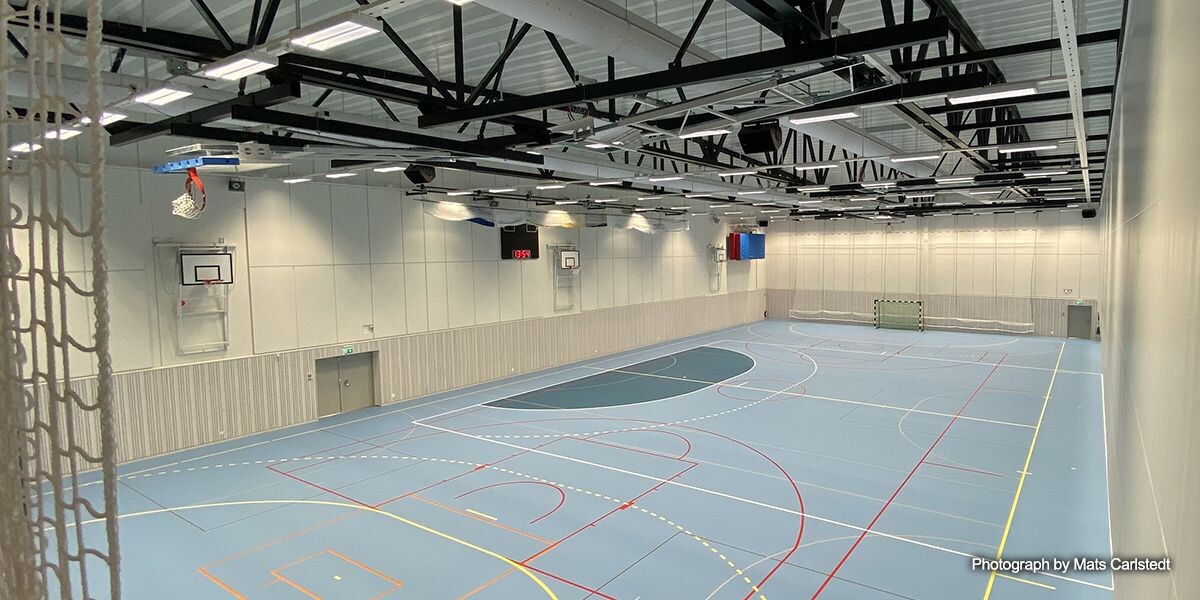
When handball club IK Lågan was promoted to the Swedish Handball League’s Division 2 in 2019, the club’s home arena - in the town of Hörby in Skåne county, south Sweden - needed to be updated to comply with the division’s rules. As parts of it were 50 years old, the municipality of Hörby decided to build a new venue with facilities for the whole community, including a flexible Yamaha audio system.
The existing facility was built in the 1960s and enlarged in the 1980s. By the late 2010s it was showing its age, so the decision was taken to implement one of the largest construction projects in Hörby's history. As well as being approved for handball in the higher divisions, the new arena was designed to be used for a wide range of sports, social and school activities. It included the main 50 x 50m handball arena, which could be split into two with a movable wall, three full-sized handball practise courts, new changing rooms, a café with associated social areas and spaces for other events.
The new Lågehallarna was designed and built by Swedish construction firm NCC in partnership with the municipality of Hörby. Mats Carlstedt of Sweden Audio Consulting AB was contracted to design and install the audio system in the main handball arena.
“For handball matches, the hall had to include retractable seating for 600 spectators and measure at least seven metres from the surface of the court to the lowest point of the ceiling,” says Mats. “Because of the limited height, there were limitations on what kind of speakers could be used. The system had to be able to play at high volume, but the boxes could not be too big. We were also asked to use powered speakers, because there was limited space for technical equipment.”
With the new venue being multi-use, Mats needed a flexible system that could meet a wide range of demands. “As well as the arena being able to be split in two, it was also important to not only to meet their expectations now, but for it to manage what might come in the future,” he adds.
As Mats was designing the system, Yamaha launched its DZR and DZR-D series of powered loudspeakers. “At that time I hadn’t had the chance to listen to the DZR range, because it was so new, but the specifications told me it would be great. And Yamaha always lives up to what it promises,” he says.
By specifying a matrix of DZR12-D Dante networked loudspeakers, Mats was also able to fulfil the requirements with a smaller number of speakers then if he specified a simpler model.
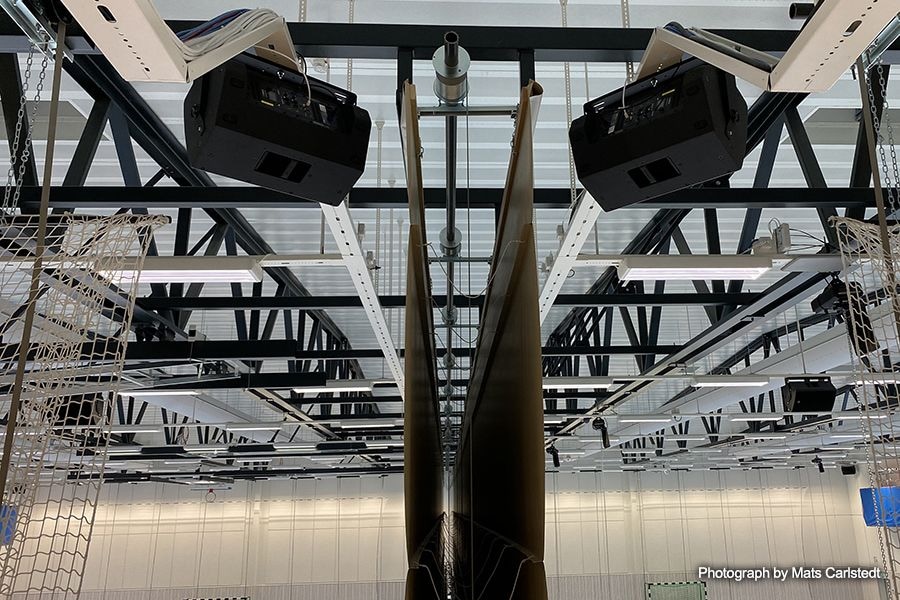
The DZR12-D networked powered loudspeakers
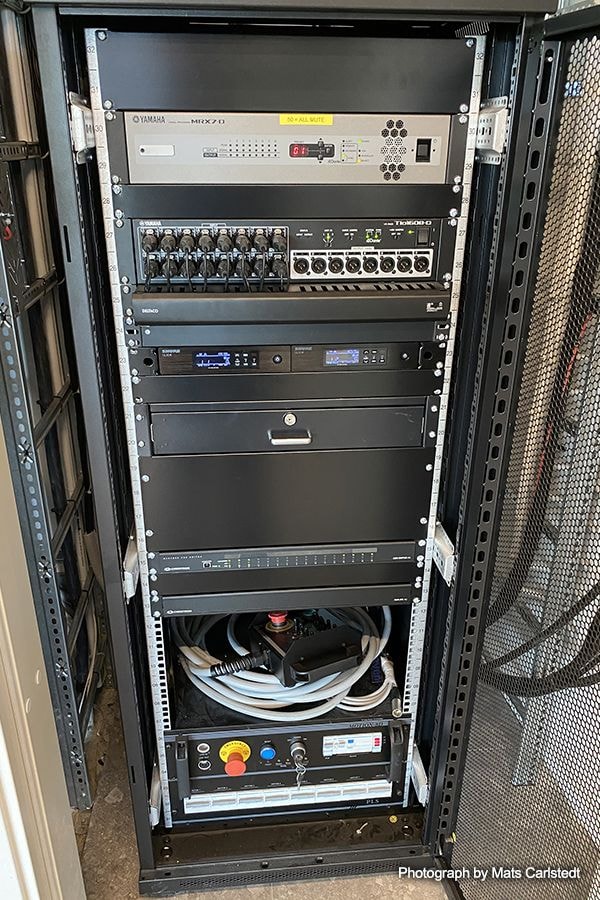
The MRX7-D signal processor and TiO1608-D I/O Rack
To deliver the required flexibility, Mats specified an MRX7-D matrix processor. The analogue outputs were used for a four channel induction loop for the hearing impaired, while he added a TIO 1608-D I/O rack to extend the number of inputs. “It’s an I/O unit that works well and is one of the best value in terms of how many ins and outs you get,” he says.
The whole system was controlled from two Crestron panels, which also control the arena lighting.
“We couldn’t get access to install the system until the final days of the project, but the installation went exactly as planned,” says Mats. “The DZR-D loudspeakers sound really good out of the box and very little EQ for room compensation was needed.
“The customer is very satisfied. I have had comments like ‘It’s unbelievable that something this cost-effective can sound so good!’”
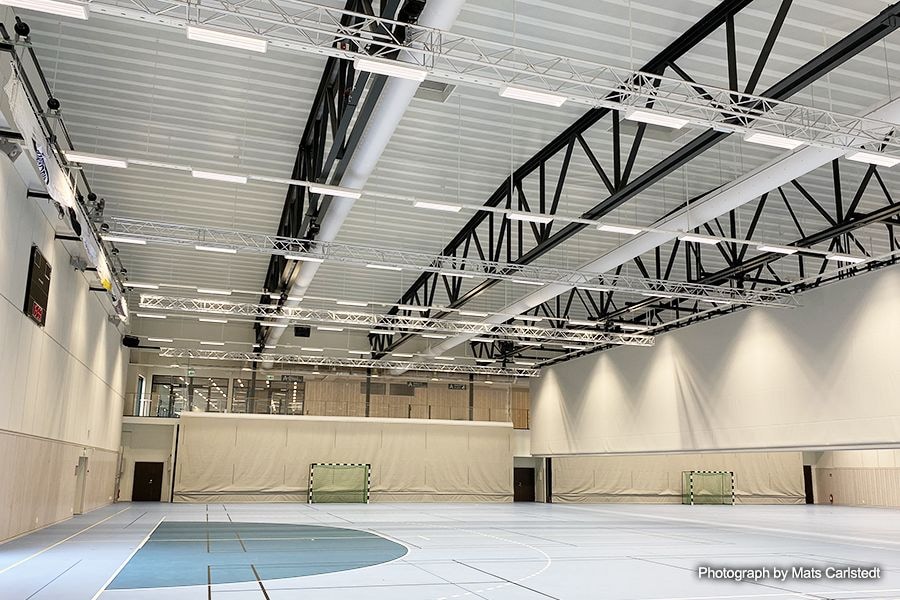
Information
Location
Hörby, Sweden

